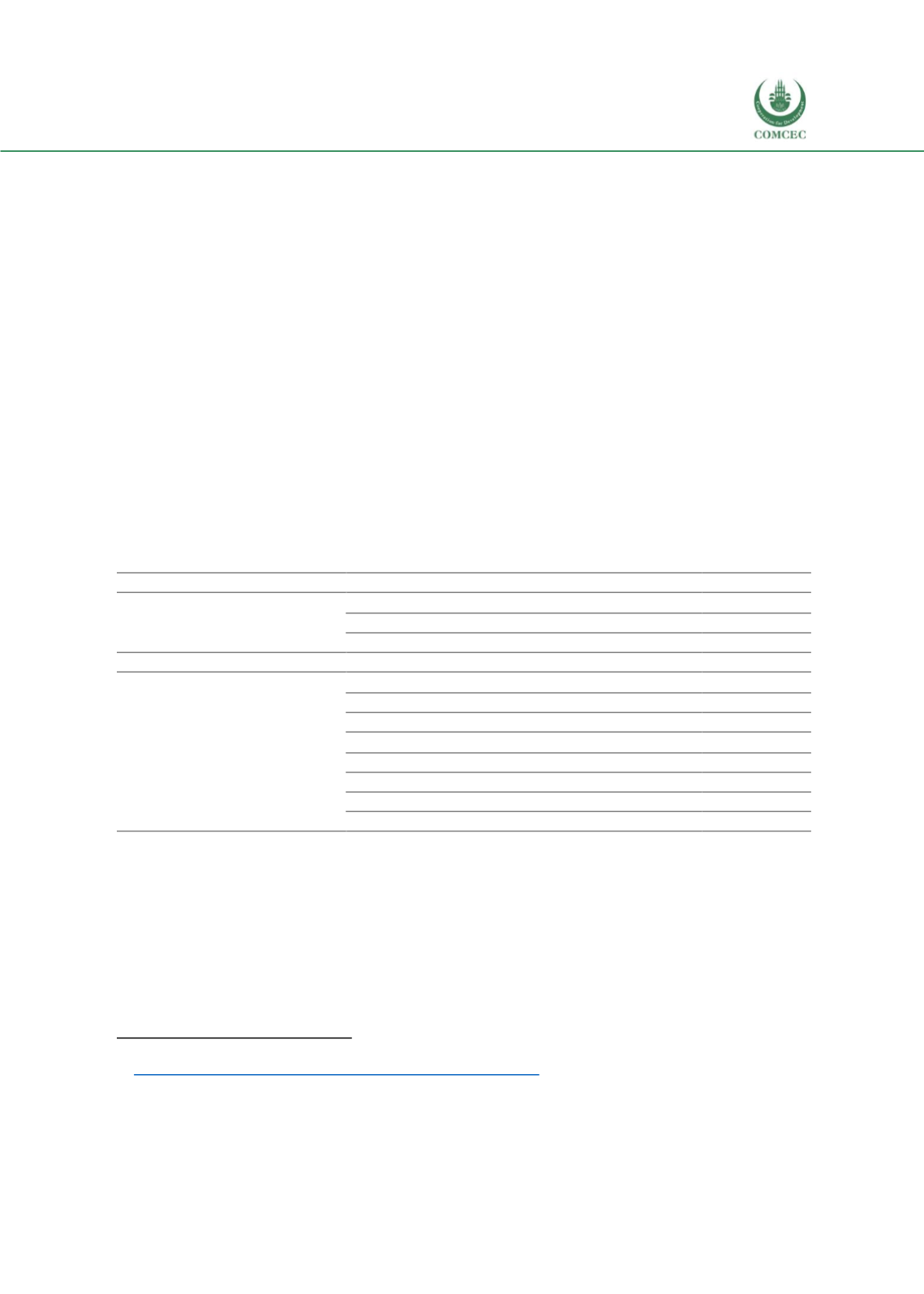

Increasing the Resilience of the Food Systems
In Islamic States in Face of Future Food Crises
75
2025's strategic targets include increasing primary production in the agri-food sector by 5% to
reach €10 billion and increasing value added by 70%, to over €13 billion.
287
Furthermore, as part of the EU, Ireland is expected to adopt EU policies and strategies. The EU’s
Common Agricultural Policy (CAP) provides a basis for strategic planning in the agricultural
sector for EU countries. As such, Ireland must develop its own CAP strategic plan, which must
then be approved andmonitored by the European Commission. The CAP promotes research and
innovation and makes these more accessible to farmers.
288
Within the framework of the EU's
CAP, Ireland has also adopted Cross Compliance and Green Direct Payment Cross Compliance
measures. In compliance with EU regulations regarding the environment, food safety, animal
health and welfare, and plant health, Ireland implemented measures to improve nitrogen use
efficiency.
289
The DAFM budget for 2018 was approximately €2.6 billion ($3.1 billion), with almost half
funded by the EU (€1.23 billion). The bulk of EU funding is directed towards cash assistance to
Irish farmers. The rural development program, which is co-funded by the EU and DAFM, seeks
to restore and preserve agriculture and forestry ecosystems, and to improve the conditions and
livelihoods of rural area habitants. The following table outlines spending by DAFM on the
various sectors in 2018.
290
Table 41: Ireland - DAFM Budget 2018
Source of Funding
Area of Expenditure
Amount
EU Funded
Direct Payments to Farmers
€1.208bn
Intervention & Aid to Private Storage
€19.5m
Market Supports
€4.5m
Co-Funding
Rural Development Program
€645m
National Expenditure
State Bodies
€326m
Forestry & Biofuels
€95m
Animal Health
€87m
Fisheries
€36m
Research, Quality & Certification
€28m
Brexit Response Loan Scheme
€25m
Food Aid & World Food
€19m
Other
€48m
Source: IrishDepartment of Agriculture, Food and the Marine
Understanding the Food Security Enabling Ecosystem in Ireland
There is significant collaboration between the government and other key food security
stakeholders, including the private sector, civil society, and universities. The following tables
give examples of some of their initiatives. Industry has collaboratedwith the government on the
Agriculture Sustainability Support and Advisory Program toencourage sustainable farming and
287
Expert Group on Future Skills Needs. 2017. Update on Future Skills Needs in the Food and Drink Sector.
28
8 https://ec.europa.eu/ireland/news/key-eu-policy-areas/agriculture_en289
“National Mitigation Plan 2017.” DCCAE. July 18, 2017.
https://www.dccae.gov.ie/en-ie/climate-action/publications/Pages/National-Mitigation-Plan.aspx
290
“Audit Committee Annual Report.” DAFM. 2018.
https://www.agriculture.gov.ie/media/migration/publications/2018/DAFM2017AuditCommitteeAnnualReport070818.pdf















